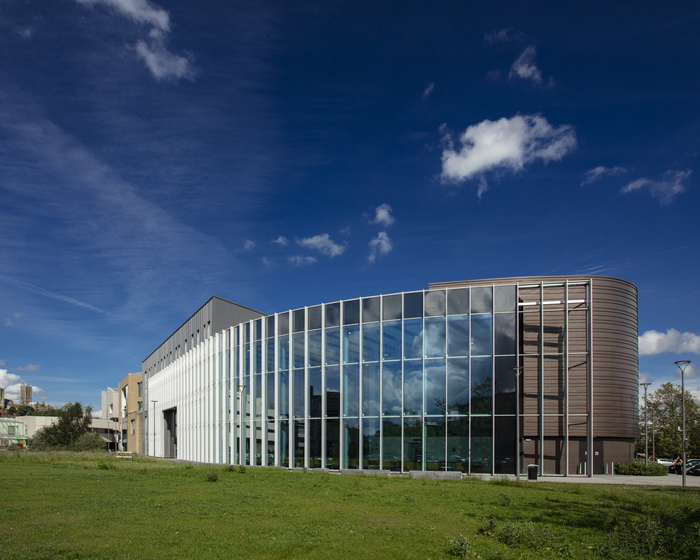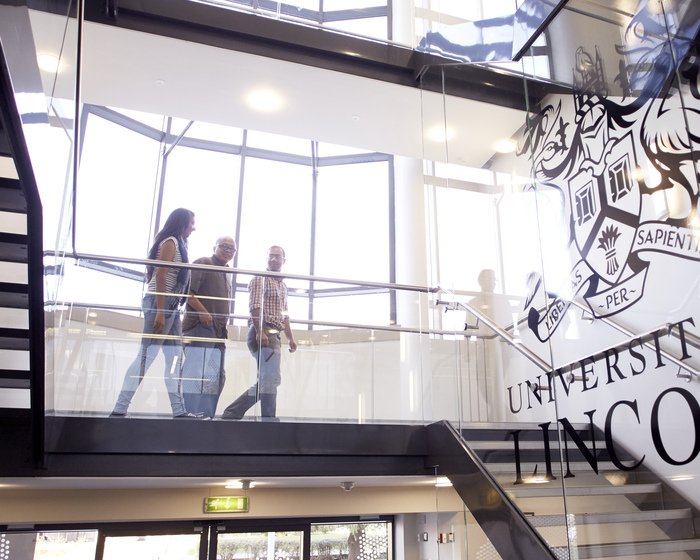/prod01/university-of-lincoln-cdn-pxl/media/responsive2017/images/course/coursebanner/Biology,1600X600.jpg )
Science Foundation Year
Life Sciences Programmes
Study Life Sciences
Our Department of Life Sciences provides an exciting and stimulating environment where excellence in teaching and research are highly valued, and we provide opportunities for students and staff to pursue their scientific ambitions.
The Department has a growing reputation for both undergraduate and postgraduate teaching and research, which covers a wide spectrum of the Life Sciences. Teaching is underpinned by the research expertise of our academic staff, encompassing areas as diverse as animal behaviour, cognition and welfare, biomedical science, biochemistry, evolution and ecology.
Foundation Year Programmes
| Course Title | UCAS Code | Validation Status | Entry Requirements (A Level) | Entry Requirements (BTEC) | Entry Requirements (T Levels) | Additional Requirements (GCSE) |
| Animal Behaviour and Welfare with Science Foundation Year BSc | D792 | Validated | 88 UCAS Tariff points from a minimum of 2 A Levels | MMM (Merit, Merit, Merit) | Pass (A*-C) | 3 GCSEs at grade 4(C) to include English and Maths |
| Biochemistry with Science Foundation Year BSc | C702 | Validated | 88 UCAS Tariff points from a minimum of 2 A Levels | MMM (Merit, Merit, Merit) | Pass (A*-C) | 3 GCSEs at grade 4(C) to include English and Maths |
| Biology with Science Foundation Year BSc | C102 | Validated | 88 UCAS Tariff points from a minimum of 2 A Levels | MMM (Merit, Merit, Merit) | Pass (A*-C) | 3 GCSEs at grade 4(C) to include English and Maths |
| Biomedical Science with Science Foundation Year BSc | B942 | Validated | 88 UCAS Tariff points from a minimum of 2 A Levels | MMM (Merit, Merit, Merit) | Pass (A*-C) | 3 GCSEs at grade 4(C) to include English and Maths |
| Bioveterinary Science with Science Foundation Year BSc | D304 | Validated | 88 UCAS Tariff points from a minimum of 2 A Levels | MMM (Merit, Merit, Merit) | Pass (A*-C) | 3 GCSEs at grade 4(C) to include English and Maths |
| Ecology and Conservation with Science Foundation Year BSc | C18A | Validated | 88 UCAS Tariff points from a minimum of 2 A Levels | MMM (Merit, Merit, Merit) | Pass (A*-C) | 3 GCSEs at grade 4(C) to include English and Maths |
| Zoology with Science Foundation Year BSc | C302 | Validated | 88 UCAS Tariff points from a minimum of 2 A Levels | MMM (Merit, Merit, Merit) | Pass (A*-C) | 3 GCSEs at grade 4(C) to include English and Maths |
Please note that English language requirements for International students can be found on the full degree course pages for each programme.
For information on any other qualifications, please contact admissions@lincoln.ac.uk.
How You Study
Students on all foundation programmes study a combination of core and subject specific modules during the first year as part of an integrated degree programme. The combination of modules studied is tailored to the needs of the full degree programme that students wish to progress onto after successful completion of the foundation year.
Following successful completion of the Science Foundation Year, students will then progress onto the first undergraduate year of their chosen degree programme. This means students will study for a total of four years for a standard degree, or five years if they take an integrated Master’s degree. Students’ final awards upon graduating will reflect the full course title, for example “BSc Zoology with Science Foundation Year”. Course specific information on the full degree programmes within the School of Life Sciences can be found within our course pages.
Modules
All students study modules which develop their knowledge and skills in biology, chemistry, mathematics, laboratory skills and study skills.
Following successful completion of the foundation year, students will then progress onto their chosen full degree programme.
How You Are Assessed
The way students will be assessed will vary for each module. It could include coursework, such as a lab report or essay, an end of year synoptic assessment, portfolio development, group work, or presentations to name some examples.


